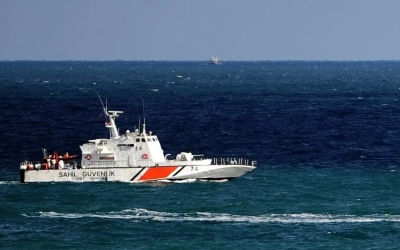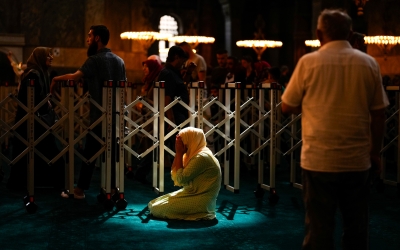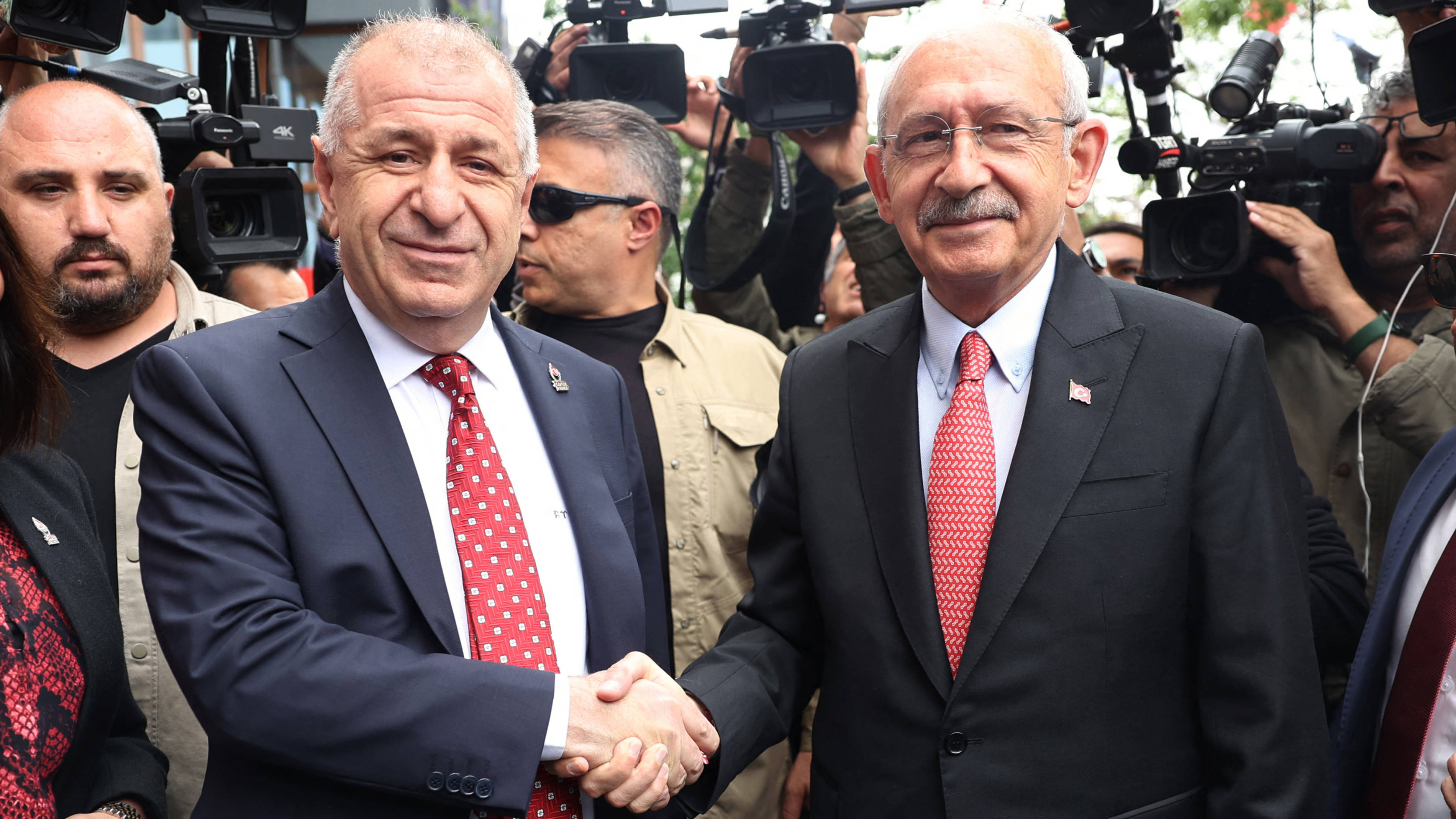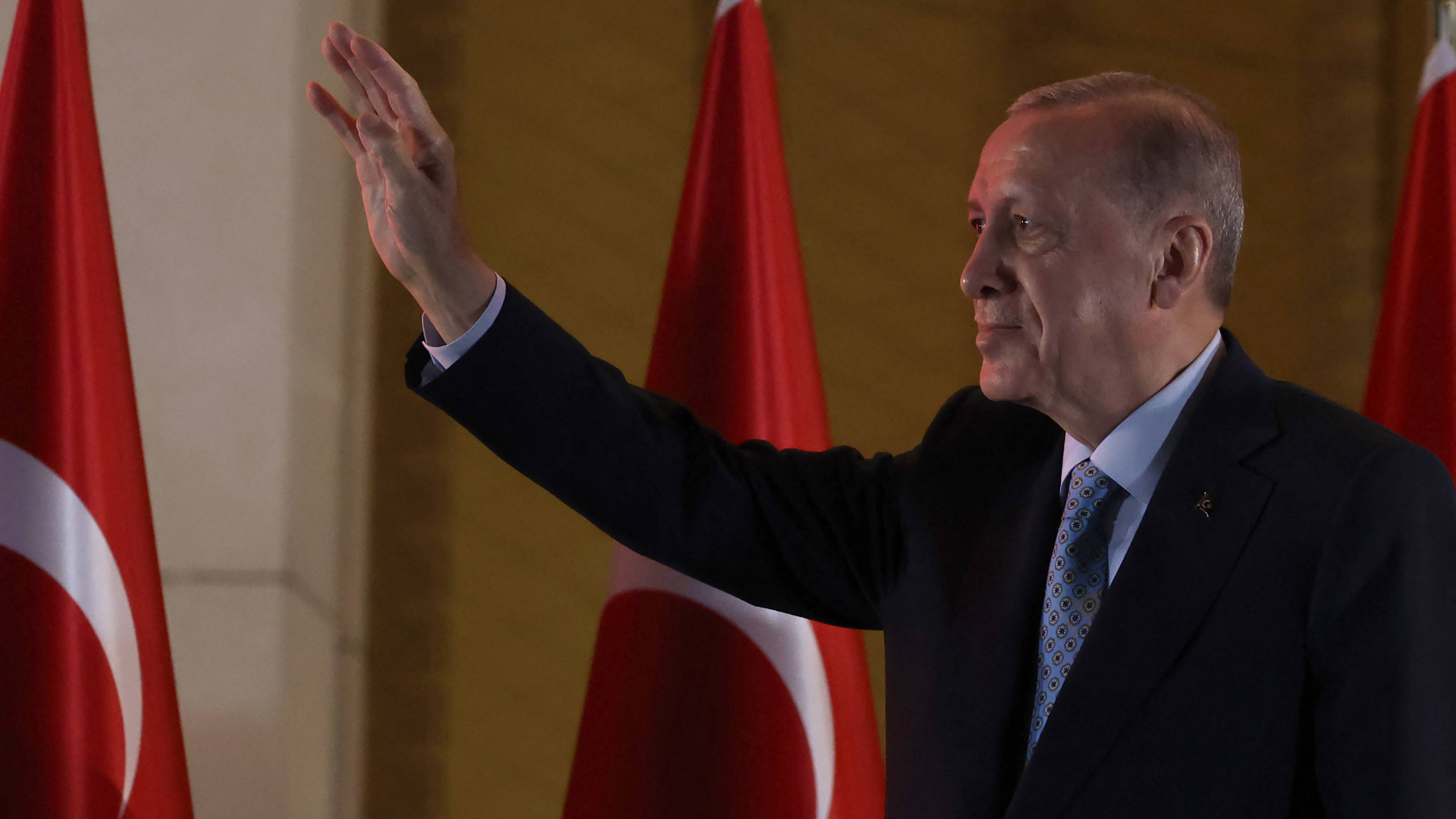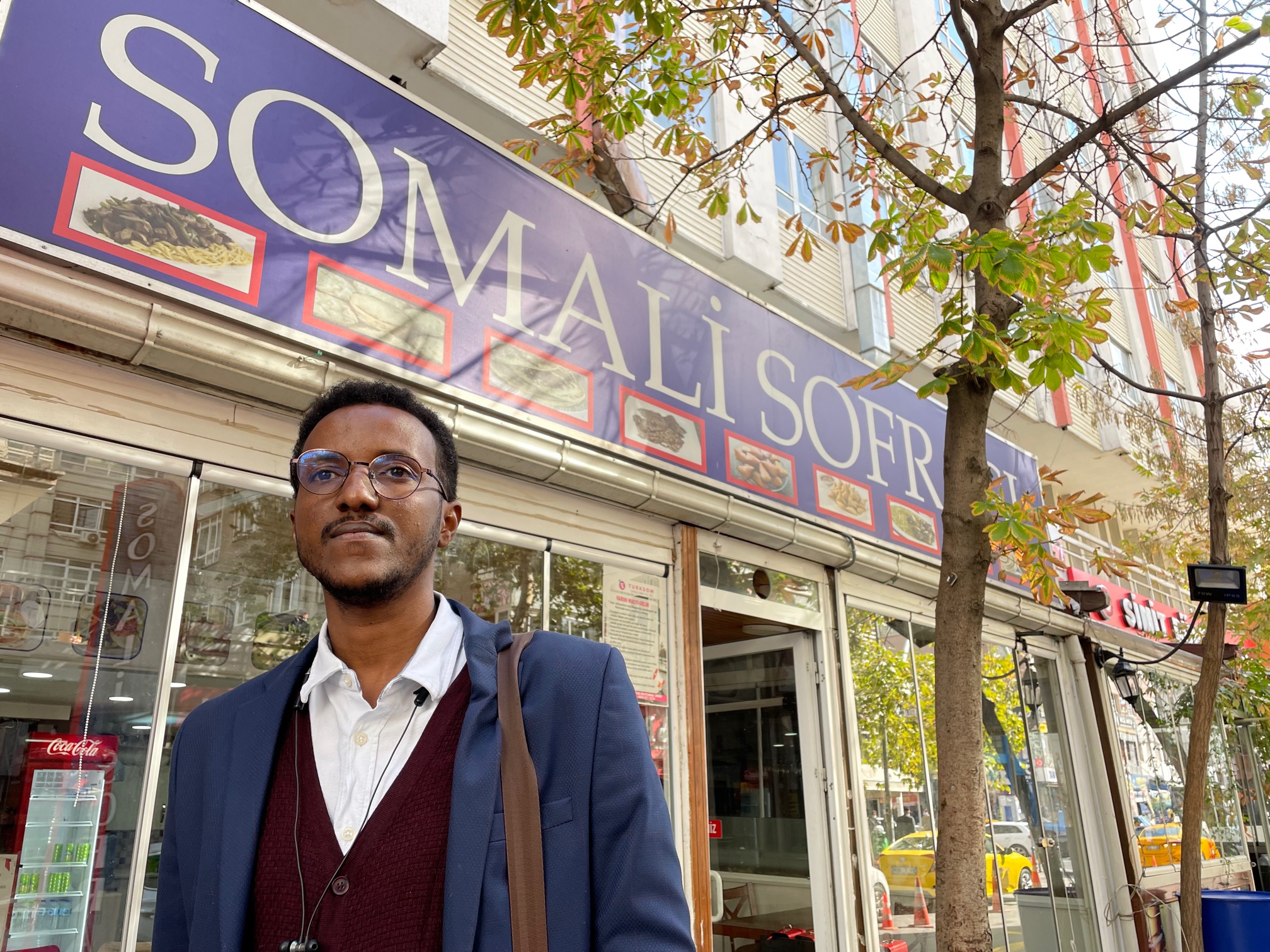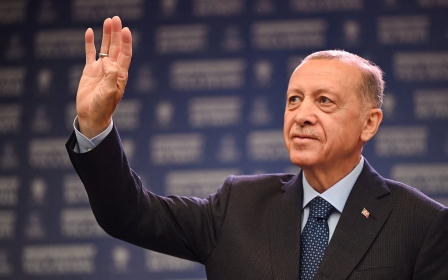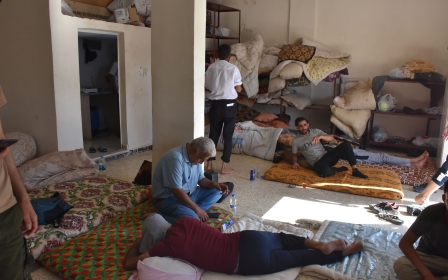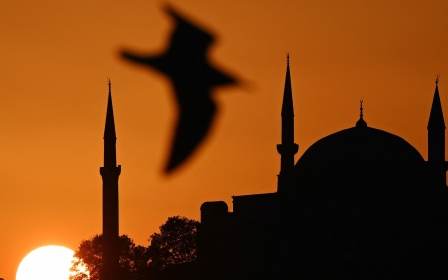Turkey: Police step up shadow campaign to deport immigrants and refugees
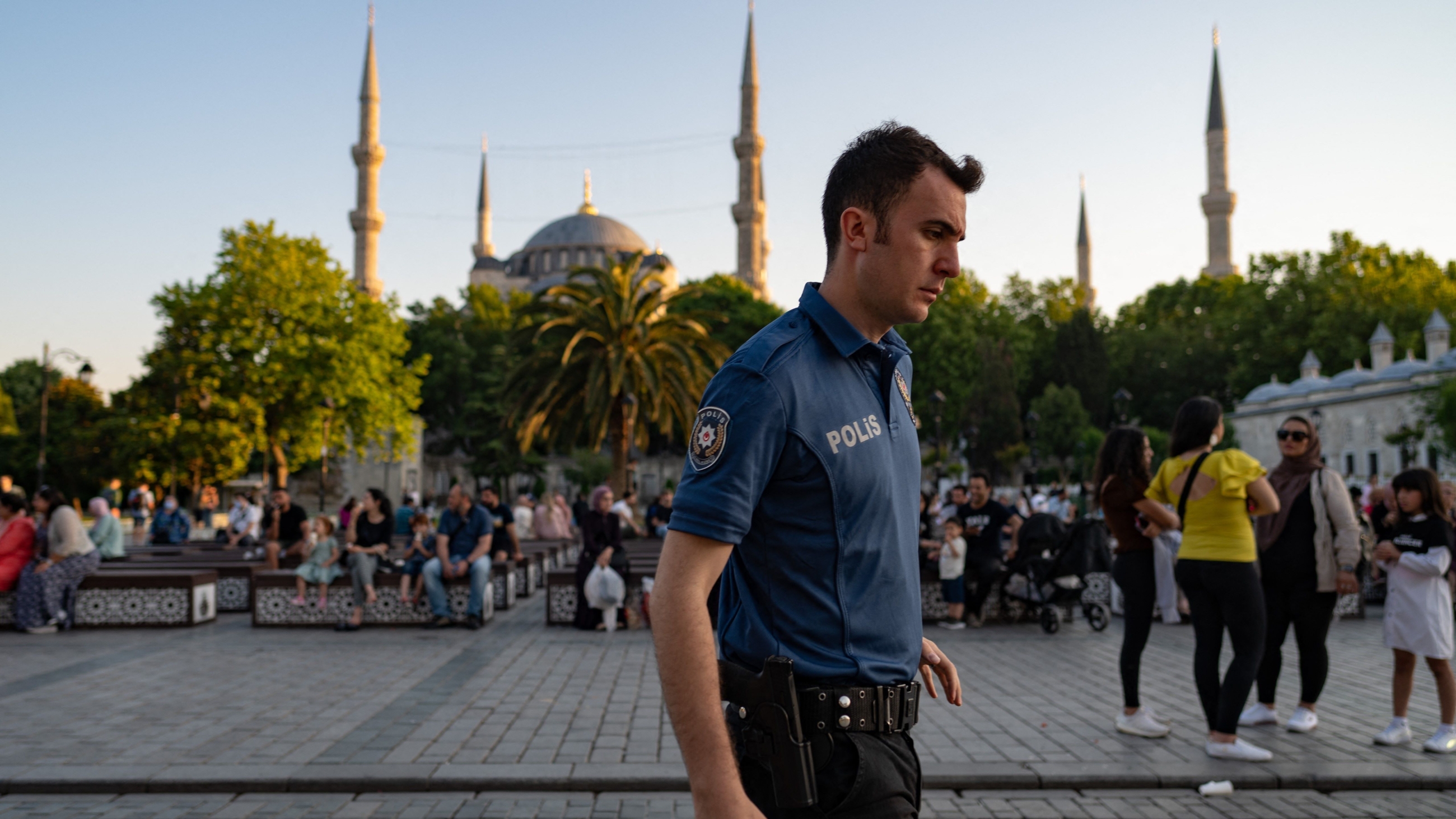
Turkey has launched a silent campaign to reduce the number of refugees and migrants within its borders, including Syrians.
The uptick comes on the heels of President Recep Tayyip Erdogan’s successful re-election campaign in May but precedes important municipal elections due to be held next year.
Migration has become a core issue in Turkey in recent years with the country hosting at least 3.6 million Syrians following the outbreak of war in their country in 2011.
They are joined by migrants from Africa, South Asia and elsewhere in the Middle East, who are drawn to the country by its relatively high standard of living and proximity to the EU, which is the ultimate destination for many.
Erdogan moved to reduce migrant and refugee numbers following the 2019 local elections, during which opposition parties were able to tap into growing anti-immigrant sentiment in the country.
New MEE newsletter: Jerusalem Dispatch
Sign up to get the latest insights and analysis on Israel-Palestine, alongside Turkey Unpacked and other MEE newsletters
Such anger towards new arrivals has increased amid a worsening economic situation, during which costs have soared and inflation has shot up dramatically.
One visible manifestation of newly instituted anti-immigration policies is the frequency of police spot checks on the streets of Turkish cities.
Those suspected of being in the country illegally are often stopped by Turkish police, who check the validity of their residency documents.
A former government official, affiliated with the Ministry of Interior’s Presidency of Migration Management, told Middle East Eye that while “voluntary return” was the main thrust of the government’s plan to reduce numbers, orders for increased police checks had come from the top.
“After Erdogan promised to send at least one million Syrians back, the interior ministry instructed the police to increase regular checks of relevant documents,” said the source, who did not give their name because they were not formally authorised to speak.
“A simple mistake, such as the absence of a residency card, can lead to the detention and eventually deportation of a Syrian.”
In May, Erdogan vowed to send a million Syrians back to the country’s north, where the Turkish army and its allies have established a “safe zone”.
‘Beyond sanity’
While voluntary repatriation is the stated aim, many Syrians could be deported on technical violations of their residency permits.
Syrians are required to live and work in the city in which they are registered and need permission to travel to another city, even for a short stay.
Recognising that some Syrians work in bigger cities like Istanbul, Bursa, or Kayseri without the necessary permission or registration, the police have been setting up checkpoints in certain areas, mostly close to where the refugees are likely to work.
According to the Syrian Observatory for Human Rights (SOHR), at least 950 Syrians were deported in July.
The number of Syrians who returned to their country between 2016 and 2022 was 539,332.
Turkish officials say that most of those who left Turkey in recent months have been those returning voluntarily.
But refugees say that even those with the correct papers are being targeted.
“This is beyond sanity,” said Usama, a 34-year-old Syrian, working in a textile factory in Istanbul’s Ikitelli, who asked Middle East Eye to conceal his surname. “We go through police controls at least twice a week, and sadly have to endure mistreatment.”
Police officers have repeatedly been filmed abusing refugees. “The fact that most police officers are supporters of the far-right Victory Party plays an undeniable role in the mistreatment, as these young officers are inclined to go beyond their legal limits,” the former employee of the migration presidency said.
Umit Ozdag’s Victory Party has built a small but influential anti-refugee movement, which managed to draw its allies in Turkey’s main opposition bloc further to the right during and after the May parliamentary and presidential elections.
The harsh rhetoric shared by anti-immigrant campaigners like Ozdag helped fuel widespread anti-immigrant sentiment during those campaigns.
“This hatred is not limited to the police. We feel uncomfortable shopping or going to a park on the weekend,” said Usama.
“Even on public transportation, we are sometimes subjected to verbal harassment,” he added. “The anti-Syrian sentiment has become prevalent across Turkey. Even my children are excluded from games at school. They feel like they have to hang out with other Syrians only.”
‘We warn each other’
Syrians like Usama have created groups on Facebook and Telegram in order to mitigate the risk of deportation.
"When we see a police checkpoint, we warn each other so that we don’t get caught for having a missing document," he said. "It wasn’t like this before the elections. But now, (the police) just detain and send people to a detention centre. Then, only God knows when you can get free."
This targeting is not confined to Syrians; Africans, as well as Central Asians also face tight police controls
“We are subjected to police checks almost every day. Many of us are detained without proper reason,” Johan, a Nigerian national said.
Formerly detained refugees claim that detention centres do not have the proper resources for accommodating so many people.
Johan was stopped by police in Taksim in early June on his way back to an apartment where he was staying with his friends.
He claims to have had the necessary documents but was awaiting the renewal of his residency permit. Despite this, he was detained and sent to a processing centre in Istanbul's Tuzla district.
"I didn't understand what happened at first, as my Turkish is limited. The police were reckless and didn't bother to provide any proper explanation (and) I found myself in Tuzla,” Johan said.
"That place is filthy, overcrowded, and there is no proper treatment. They force people to sign voluntary return papers. After staying for more than a month…they let me go."
Despite the allegations of mistreatment, an interior ministry official told Middle East Eye that the government had been applying relevant laws and regulations properly.
"There is nothing wrong but we want to decrease the density of refugees,” the official said, while conceding there might be some improper treatment. "We are running investigations into violations of rights," he added.
‘Mental transformation’
A former high-level bureaucrat specialising in migration with experience at the Ministry of Interior told Middle East Eye on condition of anonymity that they had requested courses from the ministry on how to properly apply migration regulations. However, their demand was not met.
"But this is not only about the police, nor is it only about the upcoming local elections," the bureaucrat said.
In their opinion, there are two dimensions to the anti-immigration sentiment within Turkish society.
'Turkey needs a mental transformation to live in peace with other peoples'
- Former Turkish migration official
"Turkey doesn't have a proper policy for regular migration. For instance, Turkey needs a labour force in several fields, including agriculture, industry, or care for the elderly or disabled people.
“Currently, migrants fill the labour deficit, but the laws and regulations are insufficient to allow them to work legally and under humane circumstances.
"Therefore, the absence of a proper policy, such as assessing the skills of migrants, matching them with employers, and issuing necessary work permits, forces these people to work illegally and eventually become irregular migrants,” they said.
"Turkey's education system, along with the rise of far-right parties like the Victory Party, intensifies xenophobia. Turkey needs a mental transformation to live in peace with other peoples."
Still, he admits that the government wants to decrease the visibility of migrants in certain cities like Istanbul and Ankara, which were lost to the Republican People’s Party (CHP) in 2019. Following that vote, officials took anti-migrant measures, such as deporting unregistered refugees.
The former official believes that as long as the government and the main opposition parties adopt the anti-immigration sentiment of the far-right, Turkey will experience more social tensions, regardless of the winner of the upcoming local elections.
Potential pressure points abound. In one recent instance, the alleged sexual abuse of a Turkish child by a Syrian in Sanliurfa sparked huge protests in the city, resulting in attacks on Syrian-owned homes and shops.
In another incident, when a Turkish child was beaten by a Syrian adult last week in Izmir, locals attempted to attack Syrians in response.
The end of leniency
Muhammed Yasir Bodur, a researcher at the Middle East Institute of Sakarya University, said that the government has changed its policy towards refugees to reduce social tensions, adding that this policy choice is partially related to the upcoming local elections.
"Police checks have been increased to address societal demands," he said. "Yet, this is indeed nothing but the implementation of relevant regulations.
“The government had previously adopted a very lenient policy, turning a blind eye to the presence of illegal migrants or the unauthorised relocation of refugees… provocations by far-right groups forced the government to take action."
Turkey issues four types of residency permits. One of them is temporary protection, which is issued exclusively to Syrians. The second type is international protection, issued for migrants who face a risk of death or torture in the event of their return to their native country.
The third type is temporary residency, which is generally issued to any non-Turkish national for one year. The final and most exceptional type is the humanitarian residency permit, which is issued to migrants with no documentation.
Last year, the government began imposing certain restrictions on the movement of Syrians, such as not allowing them to reside in neighbourhoods where the foreigner population exceeds 20 percent of the total. In recent months, checks on Africans have also intensified.
In Bodur's opinion, what has changed is the proper and immediate implementation of the regulations. "For instance, if a Syrian who is allowed to live in Ankara were caught in Istanbul, the police would issue a warning and let the Syrian go. Now, they take him or her immediately to a detention centre."
For Africans, Bodur believes the situation is more complicated. "These people come to Turkey via legal routes but aim to eventually make their way to Europe. They have six months to apply for residency, but most of them are reluctant to do so to avoid spending money on the legal procedure. When they get caught, they are taken to a detention centre immediately."
However, Bodur adds that this policy will likely be ineffective in reducing the number or density of migrants in Turkey for two reasons. "First, it was very easy before the pandemic to cross the border, even on foot. Second, according to the law, a detained migrant must be sent back within six months, with an option to extend for another six months.
“The return centres are almost full, and it is not easy at all to establish effective communication with corresponding states like Afghanistan in order to identify a migrant, receive their documents properly, and facilitate deportation. Therefore, many of them are released again despite the lack of (proper) papers."
Official harassment
Alongside this crackdown are the pressures on legal migrants. For instance, a restaurant owned and operated by a Somali national in Ankara was closed last year without any valid justification.
Despite the flourishing political, economic, and cultural relations between Ankara and Mogadishu over the last decade, the restaurant owner and even its patrons were subjected to police pressure.
Mohamed Isse Abdullahi, the owner, came to Turkey in 2012 on a scholarship to study in the country.
After studying at a Turkish university, he worked as a documentary maker for several media outlets, including the state-run TRT.
After opening a restaurant in one of Ankara’s central districts, Kizilay, he was met with harassment by neighbouring shop owners and then the police.
“We had every document that was required for staying, working and running a business in Turkey. But our restaurant became a hub for the police to chase and interrogate migrants,” he said.
“A police vehicle was waiting in front of the restaurant, arresting the foreign customers, checking their documents, and releasing them after a few hours. This was another way of saying: we don't want you.”
Unable to continue operating under such pressure, Abdullahi gave up his business and returned to Somalia.
This article is available in French on Middle East Eye French edition.
Middle East Eye delivers independent and unrivalled coverage and analysis of the Middle East, North Africa and beyond. To learn more about republishing this content and the associated fees, please fill out this form. More about MEE can be found here.


